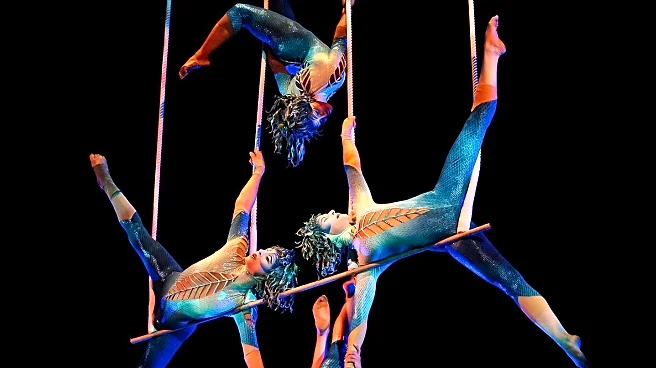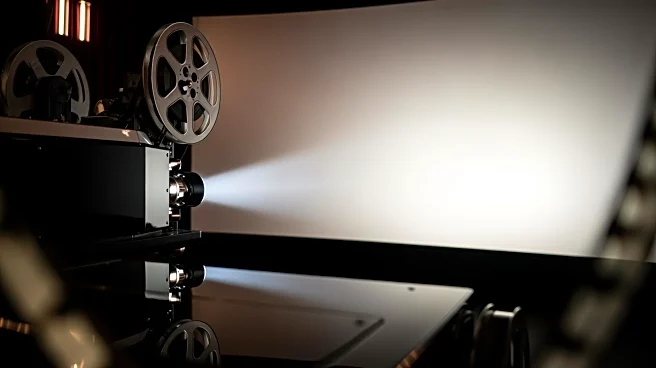What's Happening?
In Niteroi, Brazil, an aerial circus performance titled 'Alone we are petals, together we are roses' was held to spotlight the issue of violence against women. The performance, featuring six women and
two men, took place on a beach with iconic Rio de Janeiro landmarks in the background. The show, created by Juliana Berti Abduch, aims to address and combat various forms of violence through art. The performance included a narrative of a woman overcoming violence and gaining strength through community support. The event also highlighted alarming statistics about gender-based violence in Brazil, such as a woman being raped every six minutes, according to the Brazilian Forum on Public Safety.
Why It's Important?
The performance is significant as it brings attention to the pervasive issue of gender-based violence in Brazil, where more than one in three women have been victims of such violence. By using art as a medium, the show not only raises awareness but also offers a form of healing and empowerment for victims. This initiative underscores the need for societal change and the importance of community support in overcoming trauma. The performance also highlights the ongoing struggle for women's rights in Brazil, including access to legal abortion, which remains fraught with barriers despite being legally permitted in certain cases.
What's Next?
The aerial circus project is expected to continue its efforts in raising awareness and providing healing through future performances. The creators and performers aim to inspire societal change and encourage more discussions around gender-based violence. As the project gains attention, it may influence public policy and support initiatives aimed at reducing violence against women. The performance also serves as a call to action for communities to unite and support victims, potentially leading to increased advocacy and resources for women's rights in Brazil.
Beyond the Headlines
The use of art in addressing social issues like gender-based violence highlights the potential for creative expressions to foster dialogue and healing. This approach not only raises awareness but also empowers victims by providing them with a platform to reclaim their narratives. The performance's impact extends beyond the immediate audience, as it challenges cultural norms and encourages broader societal reflection on the treatment of women. By integrating art with activism, the project exemplifies how cultural initiatives can contribute to long-term social change.









